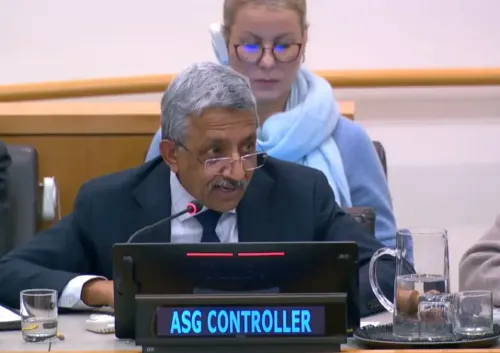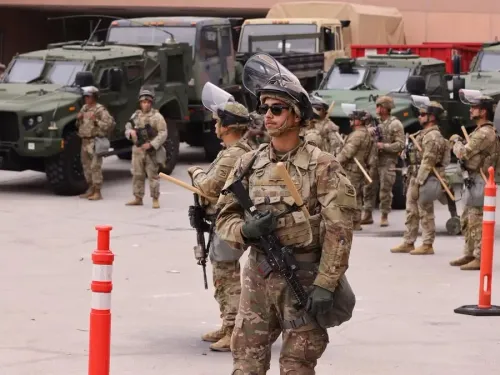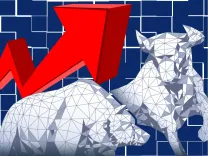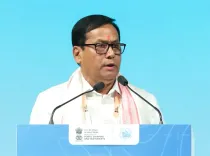Is Congress Right to Criticize Trump Over H-1B Visa Fee Increase?
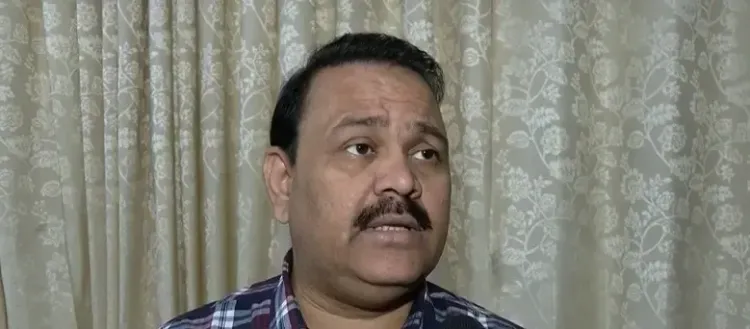
Synopsis
Key Takeaways
- The new H-1B visa fee is set at $100,000.
- Congress criticizes the impact on Indo-US relations.
- Major tech companies may face increased hiring costs.
- The proclamation aims to incentivize hiring of American workers.
- The H-1B visa program is capped at 85,000 new visas annually.
New Delhi, Sep 20 (NationPress) As US President Donald Trump tightens H-1B visa regulations and imposes a new annual fee of $100,000, the Congress party has strongly condemned this decision, asserting that it is not an unprecedented action and attributing the deterioration in Indo-US relations to the Centre's policies.
In an interview with IANS, Congress MP Manoj Kumar remarked, “This is not a new issue. Tariffs have already been imposed. Now, Trump is escalating this situation. The entirety of India is aware of Trump's actions and intentions.”
He further questioned, “On one hand, the Prime Minister is touted as a close ally of Trump, yet on the other hand, exorbitant fees are being levied on H-1B visas. What is the rationale behind Trump's actions? He appears to think of himself as a monarch, believing this will yield him success. However, we will maintain our stance; his policies are merely digging his own grave.”
Congress leader Surendra Rajput stated, “The US continues to act adversarially while professing friendship with PM Modi. Trump's actions are detrimental to 1.4 billion Indians.”
He provided three notable instances: Firstly, the increase in H-1B visa fees. Secondly, the revocation of the sanctions waiver on Iran's Chabahar port — a critical trade route for India with Russia, Afghanistan, and the Middle East — bypassing Pakistan. Lastly, the imposition of 50% tariffs on Indian products. “If Trump is a friend of Modi, his actions suggest otherwise. A tweet on Modi's birthday does not equate to friendship,” he added.
Congress leader Vijay Wadettiwar emphasized that while the media often highlights Trump's commendations of Modi, the focus should be on tangible actions, such as lowering tariffs, which Trump is consistently raising, impacting Indian citizens adversely. The decline in Indo-US relations can be directly traced back to our government's actions.
According to the latest proclamation, every application will now incur a fee of $100,000 annually — a measure intended to limit the misuse of the visa program and promote the hiring of local workers.
During the announcement at the White House, President Trump emphasized that the “goal is to incentivize the employment of American workers.”
Commerce Secretary Howard Lutnick defended the policy, asserting that it would dissuade businesses from recruiting foreign labor.
“The premise is that large tech companies will no longer train foreign workers without first paying the government $100,000 and compensating the employee. Thus, it becomes economically unfeasible. The focus should be on training American graduates instead of importing foreign labor,” he elaborated.
Lutnick confirmed that the visa could only be renewed for a maximum of six years, applicable to both new and renewal applications.
“Individuals must either be highly valuable to the company and the nation, or they will leave. This policy will prevent the unrestricted entry of foreign workers on these previously lenient visas,” he asserted.
The proclamation stated that the H1-B visa program has been “exploited to replace, rather than augment, American workers with lower-paid, lower-skilled labor,” compromising “our economic stability and national security.”
Following this, the Secretary of Labor will initiate revisions to the prevailing wage levels.
Both Trump and Lutnick confirmed that major tech firms are supportive of this initiative.
“They are enthusiastic. They genuinely require this policy. I believe it will be well-received, allowing us to retain productive individuals in our nation,” Trump concluded.
Additionally, President Trump signed an executive order establishing a gold card program, allowing individuals to secure a visa for $1 million and corporations for $2 million.
The H-1B visa program, capped at 85,000 new visas each year, permits US companies to employ skilled foreign labor in sectors such as technology and engineering. This recent initiative is anticipated to significantly affect major American technology firms.


